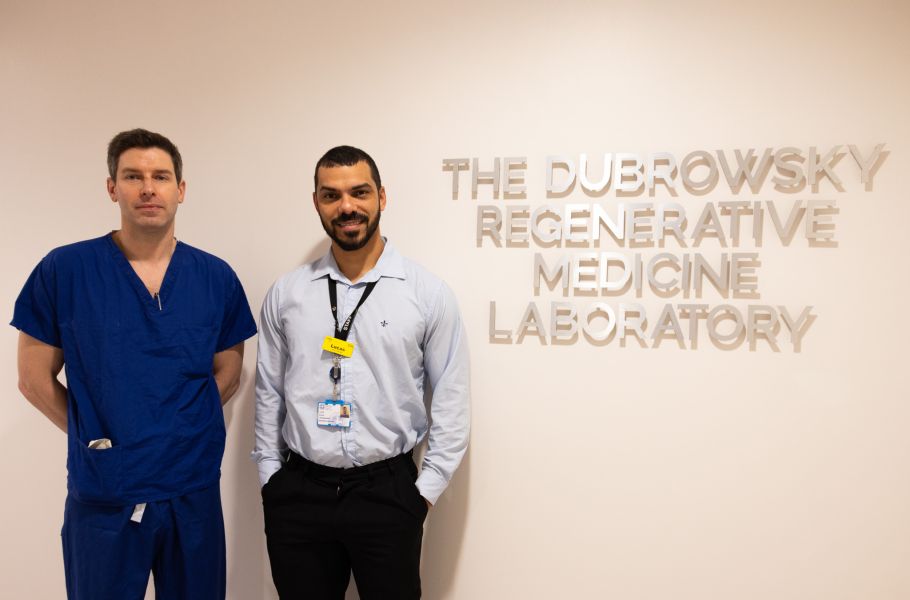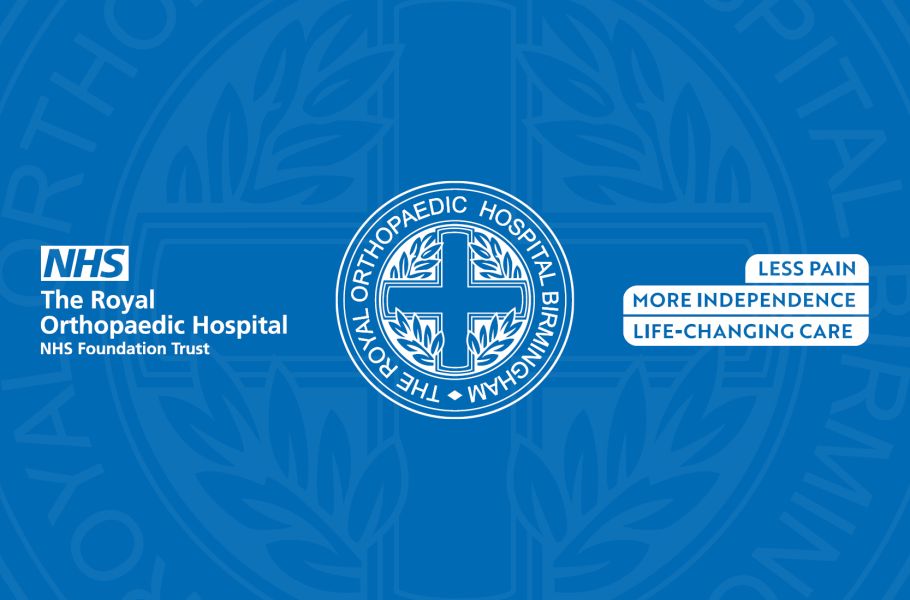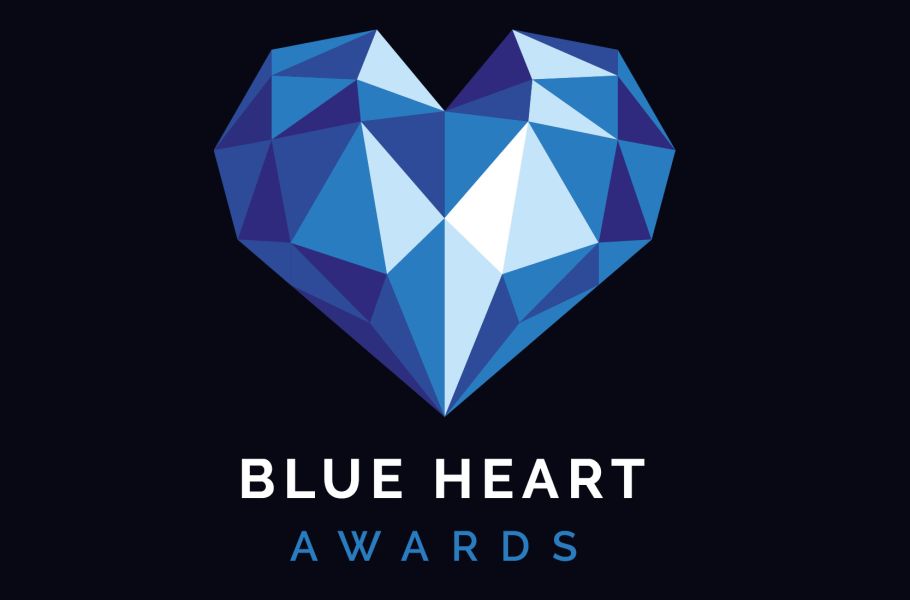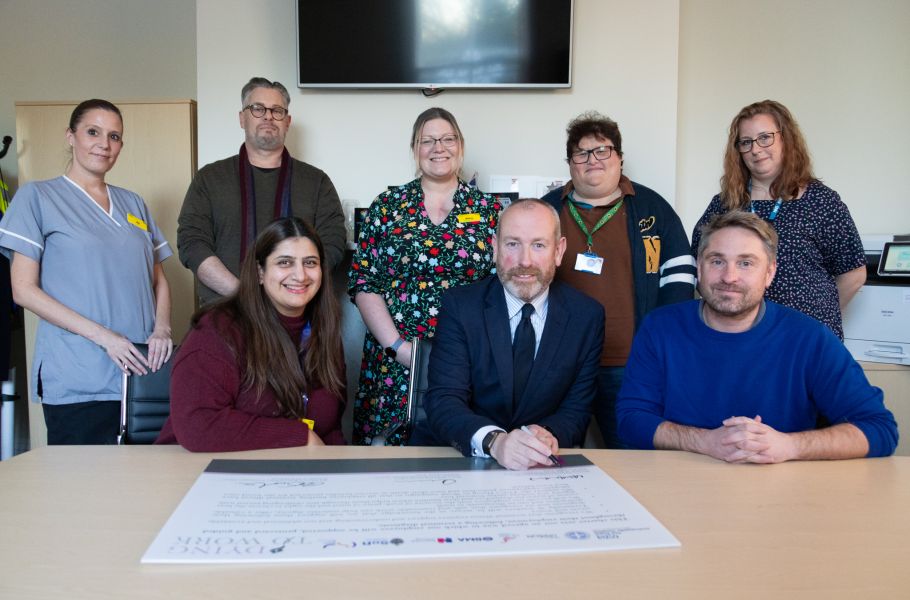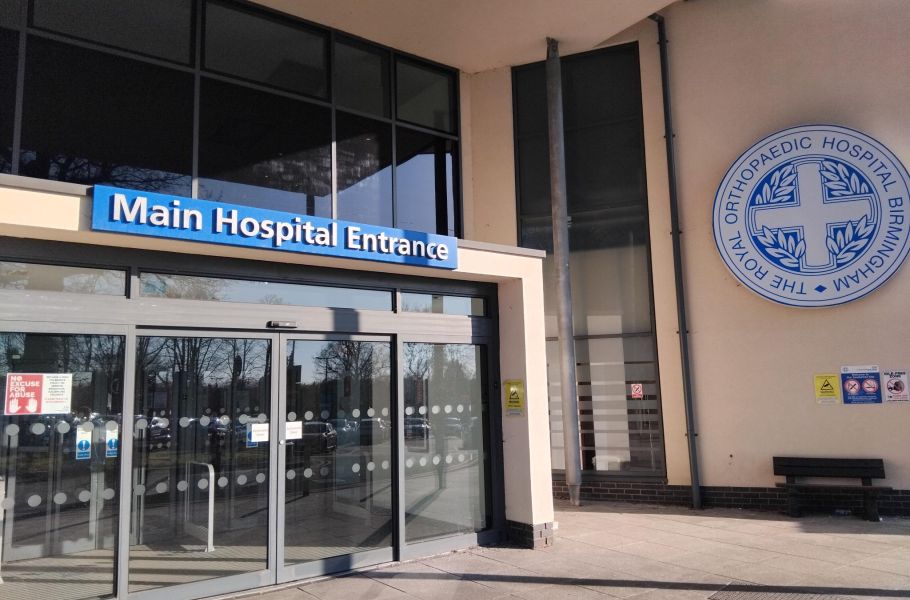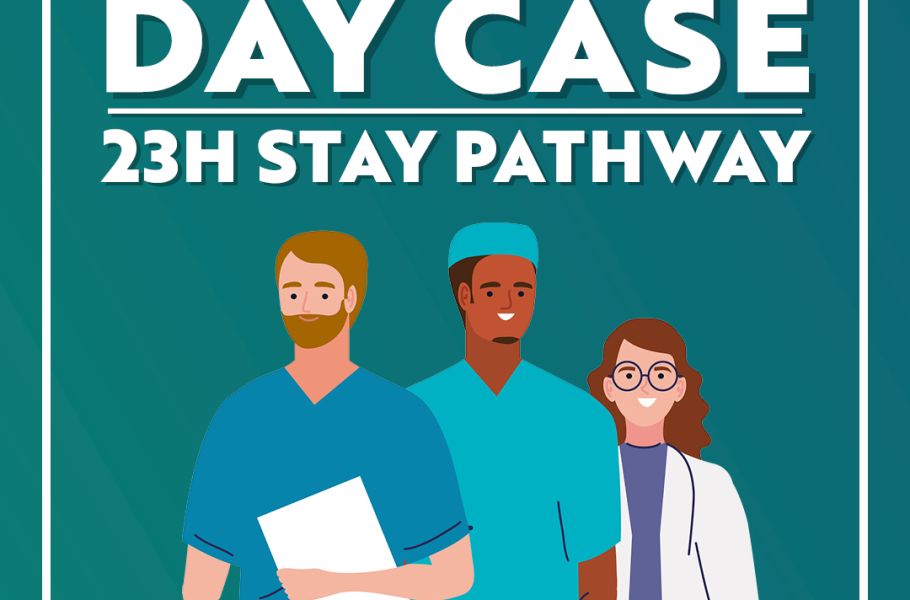“If it helps just one person, it will have been worth it”: Shining the spotlight on disability awareness
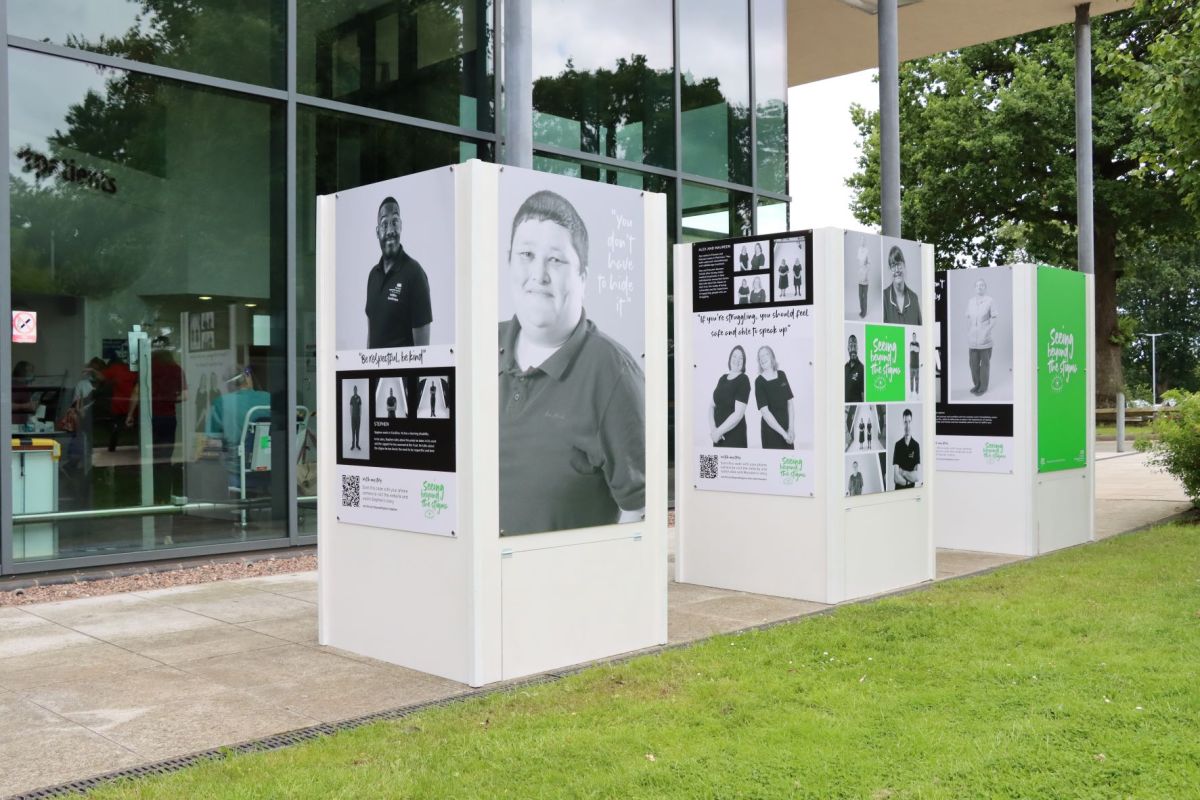
Eight members of staff have come together to take part in an exciting multimedia project, highlighting different disabilities, both visible and hidden.
‘Seeing beyond the stigma’ is a photography and video exhibition which aims to show the importance of destigmatising disabilities, produced by and featuring staff at The Royal Orthopaedic Hospital NHS Foundation Trust (ROH).

The participants, Vickie, Alex, Maureen, Clair, Monica, Richard, Suzie and Stephen, represent a number of disabilities between them. Some have mental health conditions or learning disabilities, where others have physical conditions like osteoarthritis or partial sight. Two of the participants are recovering from chemotherapy and radiotherapy from cancer treatment – something many people don’t realise is classed as a long-term disability.
Every story is different but there is a common thread between them all; the need to be kind, the need to see the individual beyond the disability and the importance of taking the time to understand.
The exhibition was funded by the NHS Workforce Disability Equality Standard (WDES) Innovation Fund. The WDES is helping to inform year-on-year improvements in reducing barriers, driving changes in attitudes, increasing employment and career opportunities and implementing long-lasting change for disabled people.

The WDES is a set of 10 specific metrics which enables NHS organisations to compare the workplace and career experiences of disabled and non-disabled staff.
The Trust has made significant progress in the past few years in how it supports diverse staff groups, patient groups, visitors and community with the aim of ensuring that the Trust is seen as a truly inclusive organisation through creating a sense of belonging.
A key part of this success has been linked to the work undertaken by the ROH staff networks; notably the Disability Network. The members of this network have been the key motivating force behind this project. From the start when we were reviewing the bid criteria, they have been incredibly positive working together as a group to help educate and promote awareness across the Trust and wider.
Head of Inclusion and Organisational Development, Clare Mair, said: “We wanted to pursue the project, as raising awareness of different types of disability and how they impact lives is incredibly important. Disability awareness campaigns highlight what daily life is like for somebody with a disability.
“We wanted our participants to tell their stories in their own unique way and a way in which they’re comfortable doing so. We also felt it vital to ensure we are representing our wonderful colleagues across the Trust who may have invisible disabilities, including mental health conditions.”
The network decided to design a project that includes four elements that could stand independently or interlink.
A Photography project comprising of a series of photographs portraying staff members who are passionate about highlighting and raising awareness of their disability or long-term illness. The staff involved came from a diverse background not only in terms of disability but also across the nine protected characteristics.
A series of ‘talking heads’ videos featuring the staff from the photography exhibition to enable them to share their own individual story, in their own personal way. They were encouraged to share their story in a way in which they are comfortable doing so.
Awareness sessions will be designed to be used in different formats i.e. classroom-based, virtual, webinar and podcasts using the photography and videos. The awareness sessions will also be used in other intervention such as staff induction and team meetings.
A buddy scheme will also be available for disabled staff to access from when they join the Trust. It will offer support and mutual understanding and education. Those participating in this scheme have been offered the opportunity to receive skills development.
One participant in the project said: “It has empowered me to talk about my condition, when I wouldn’t have necessarily done so. It made me think about my condition and how I have faced stigma in my life, and not realised it.” Another added: “If this project helps just one person take a moment to think about whether they are struggling and will go to their line manager for help, it will have been worth taking part in it.”

The project was unveiled on 15 July, where ROH Chief Executive Jo Williams praised the participants’ “courage and bravery” and called them “the real stars of ROH”.
You can see the whole exhibition in person at The Royal Orthopaedic Hospital outside the Outpatients Department and online at https://www.roh.nhs.uk/beyondstigma

